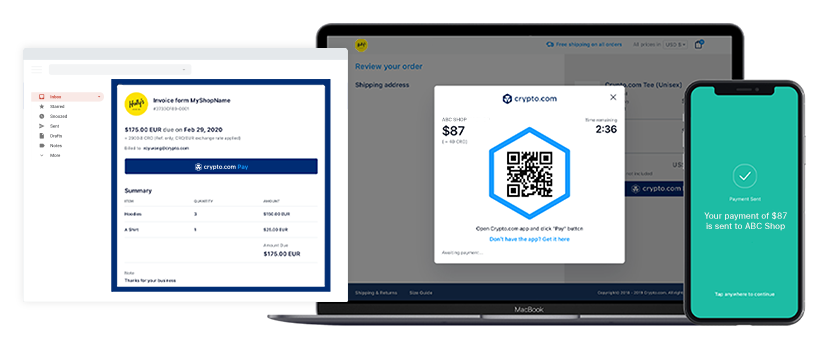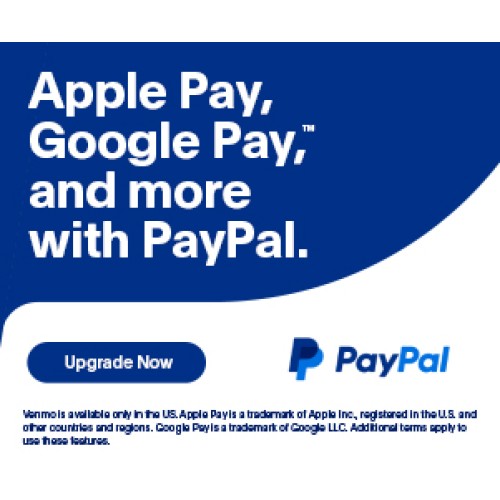
Financial institutions, small businesses, and everyday investors have all contributed to a surge in the adoption of cryptocurrencies over the past year, resulting in an unprecedented rally for the most popular among them, Bitcoin. This rise is shining a spotlight on the topic of how cryptocurrency will shape the future of payments.
In this blog post, we look at who is already accepting cryptocurrency as a payment method, what the benefits are, and how it all works, so merchants can make more informed decisions when managing their online shops.
Who accepts crypto?
There are now a wide range of industries that accept crypto payments. Here are just a few examples:
● Microsoft (software)
● Starbucks (F&B)
● Nordstrom (fashion)
● Whole Foods (retail)
● Expedia (travel)
● Home Depot (furnishing)
● Twitch (gaming)
It’s interesting to note that the education sector has stayed ahead of many of these companies, as several universities have been accepting cryptocurrency since 2013. King’s College in New York City, ESMT Berlin, University of Cumbria, and University of Nicosia have all been accepting Bitcoin payments for tuition fees for some time. A spokesperson at the University of Nicosia said:
“The intention of this initiative is to ease transmission difficulties for certain students and to build our own practical knowledge about this field, not to engage in currency speculation[1].”
This perspective suggests that digital currencies are a valuable alternative to traditional payment methods in cutting down on transaction time and cost, as well as bringing financial services to under-banked regions around the world.
Cryptocurrency payments have been steadily gaining in popularity since their inception, but 2021 marked an important turning point in accelerating mainstream adoption.
Why is cryptocurrency
becoming more widely accepted?
Nowadays, more than 1/3 of small and medium-sized businesses in the U.S. accept cryptocurrency as payment for goods and services, where younger companies are up to twice as likely to trade in crypto[2]. Compared to legacy payment systems, cryptocurrency offers many notable advantages.
●
More Economical
Average credit card processing fees range from 1.7% to 3.5% per transaction[3]. Moreover, it usually takes banks a few business days to process transactions.
By taking out the middlemen, crypto payments save merchants up to 5% per transaction[4]. In addition, merchants can accept cross-border payments without paying foreign transaction fees. Crypto.com, for example, only charges a 0.5% settlement fee, which is waivable for the first 6 months. Besides lower fees, crypto transactions are much faster and payments can be settled within seconds.
●
More Secure
Banks are susceptible to fraud, such as identity theft. According to the U.S. Federal Trade Commission, the number of identity theft reports doubled in 2020 from 2019[5].
Cryptocurrency, however, does not have this problem. Thanks to its decentralised nature, blockchains are tamper-proof and fraud-resistant. While bad actors can hack into your bank account, it is impossible for them to access a crypto account.
●
More Private
Since banks and traditional payment processors are centralised, they have full control of users’ private data, such as their name, age, net worth, assets, credit score, and employers. These financial institutions can freeze your account in a matter of seconds.
Crypto payment processors, on the contrary, only require basic information when you set up an account, such as your name and email address.
In summary, given the advantages of crypto payments, it is easy to understand why they are becoming more widely recognised and accepted.
How do crypto payments work?
Crypto payment processors develop and maintain plugins for e-commerce platforms. Payment buttons are generated on the merchant dashboard and can be embedded anywhere on the merchant’s website. The steps to carrying out a crypto payment are:
1. Preparation: Customers choose to pay in crypto on the checkout page of the online store.
2. Scan QR code: Customers scan the QR code to initiate the payment.
3. Invoice and payment: Customers receive an invoice generated by the merchant and settle in the crypto of their choice.
4. Conversion: Merchants receive the payment instantly (paid in fiat currency) in their business account.
5. Transfer: Crypto payment processors transfer the fiat funds in the merchants’ business accounts to their bank accounts.
Crypto checkout plugins help merchants keep up with the new trend in the payment industry. We know that many merchants have concerns when it comes to deciding whether to accept crypto payments. Here, we answer the most commonly asked questions.
●
What is the crypto-to-fiat exchange rate?
Merchants can accept cryptocurrencies without price
fluctuation. By withdrawing your earnings to supported stablecoins (TUSD or
USDC), the amount you could redeem is guaranteed at a 1:1 fiat ratio.
●
What are the fees associated with merchant accounts?
On average, there is a 1% transaction fee. However, some companies like Crypto.com charge no transaction or set up fees. Only a 0.5% fee will be applied thereafter when you send funds to your stablecoin wallet address.
● What is the potential customer base for crypto payments?
Anyone with a cryptocurrency wallet is your potential customer. The exact number depends on the cryptocurrencies accepted by your chosen payment processor. For example, Crypto.com Pay has 30+ million potential users.
Concluding Remarks
There is no doubt as to the growing popularity of crypto payments. Merchants at OpenCart can now access over 30 million customers by adding a simple plugin or a few lines of code to their online store.
When discussing cryptocurrency, security often comes up as a concern, which is why it’s important to work with companies that are committed to safety and security. Crypto.com, for instance, is the first cryptocurrency company to achieve Cryptocurrency Security Standard (CCSS) Level 3 and PCI:DSS Level 1 compliance.
Click here to apply for a Crypto.com Merchant account. After signing up, remember to download Crypto.com Pay Checkout to start using the service. Visit here to learn more about Crypto.com Pay. For inquiries, please contact pay@crypto.com.

[1] Szoldra, P. (2013, November 21). A Cyprus
University Is First In The World To Accept Bitcoin For Tuition. Business Insider. https://www.businessinsider.com/cyprus-university-bitcoin-tuition-2013-11
[2] Business Wire. (2020, January 15). HSB Survey
Finds One-Third of Small Businesses Accept Cryptocurrency. https://www.businesswire.com/news/home/20200115005482/en/HSB-Survey-Finds-One-Third-Small-Businesses-Accept
[3] Prakash, P. (2020, March 19). Credit Card
Processing Fees: The Complete Guide. Fundera.
https://www.fundera.com/blog/credit-card-processing-fees
[4] DeVivo,
M. Why and How to Accept Cryptocurrency on Your Website. Single Grain. https://www.singlegrain.com/blockchain/why-and-how-to-accept-cryptocurrency-on-your-website/
[5] Owaida, A. (2021, February 2). Identity Theft
Spikes Amid Pandemic. Welivesecurity. https://www.welivesecurity.com/2021/02/03/identity-theft-spikes-amid-pandemic/?utm_source=newsletter&utm_medium=email&utm_campaign=wls-newsletter-050221



Login and write down your comment.
Login my OpenCart Account